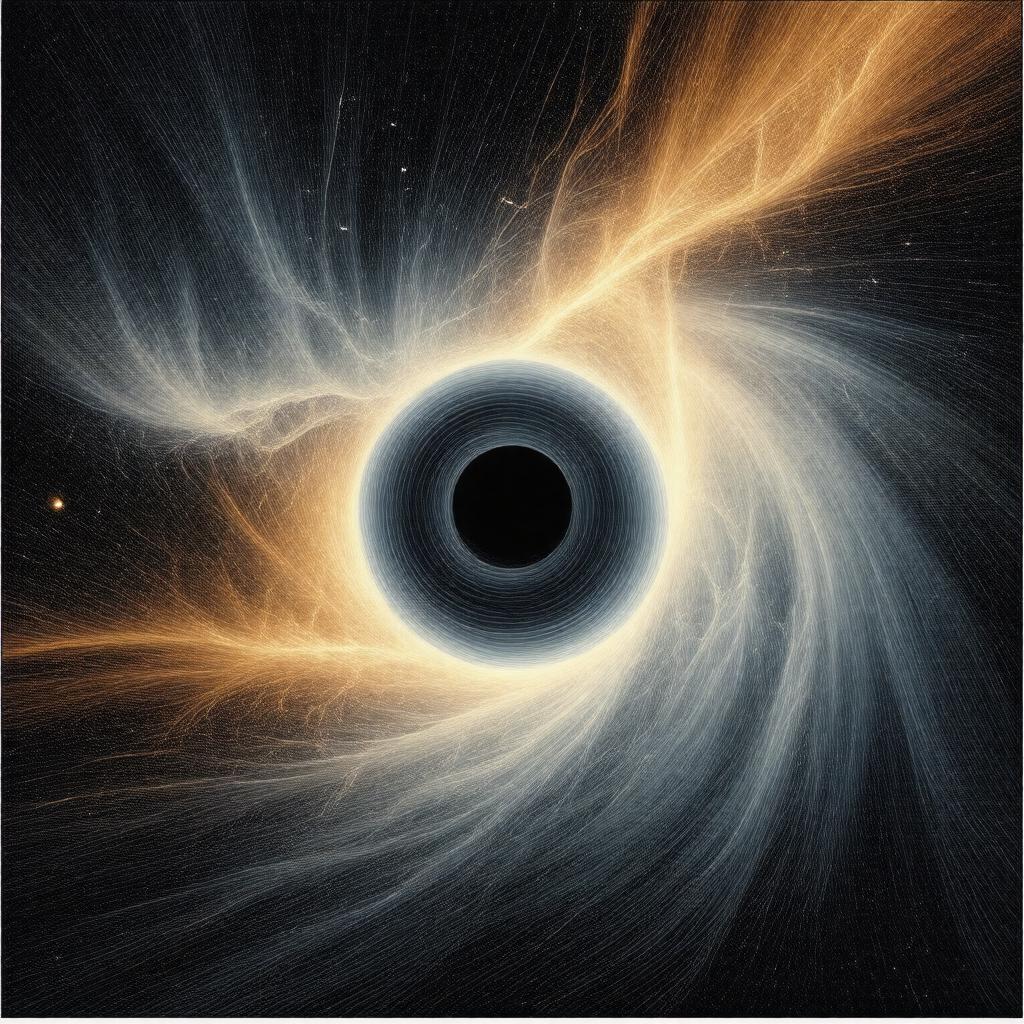Prompt
"Generate an image of a black hole emitting thermal radiation, with a swirling accretion disk and a faint glow of Hawking radiation surrounding it, set against a dark, starry background. The black hole's event horizon should be prominently featured, with a subtle gradient of colors indicating the intense gravitational field. The style should be a mix of scientific illustration and cosmic art, conveying the complex concepts of quantum effects and black hole evaporation."

